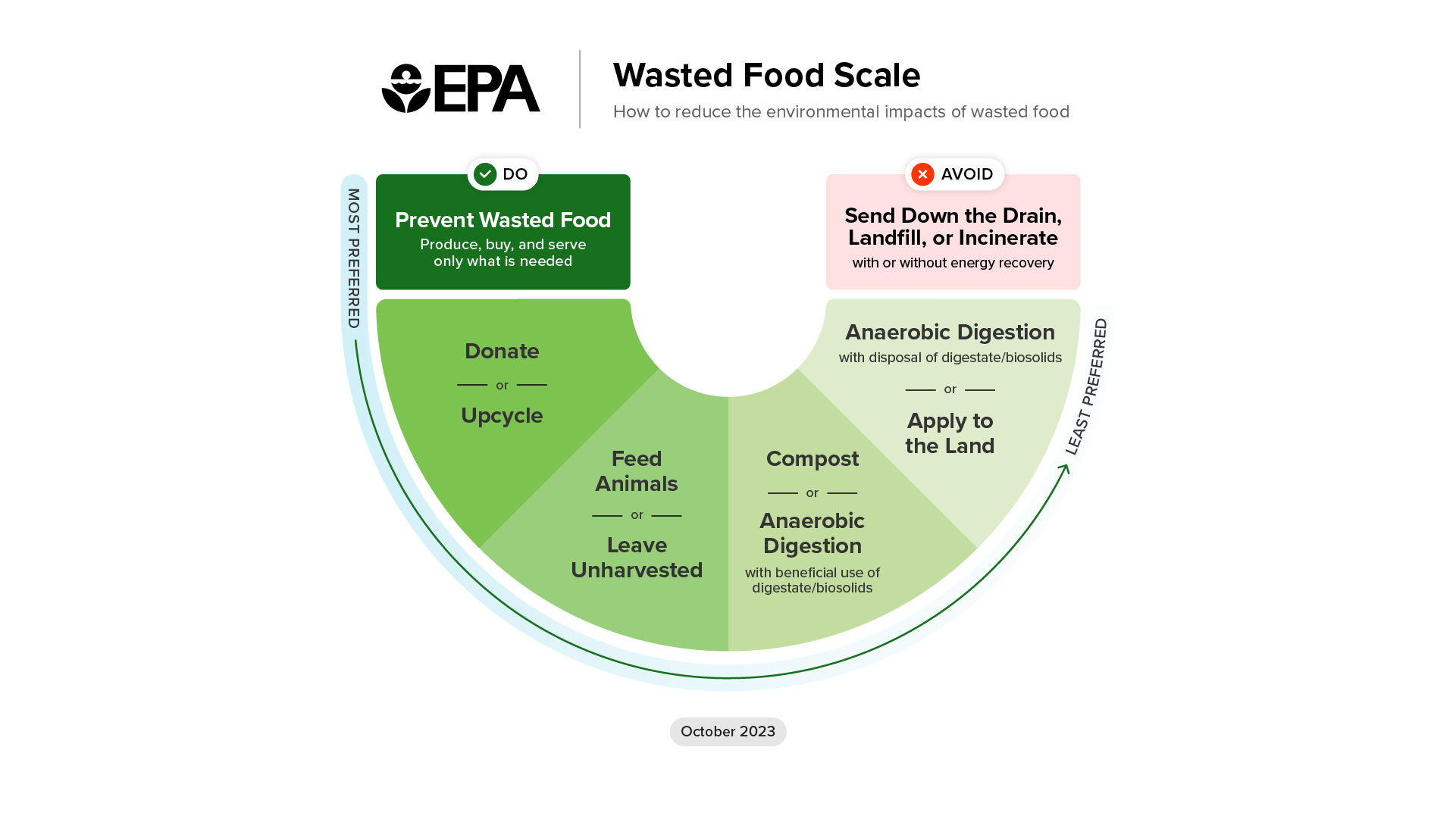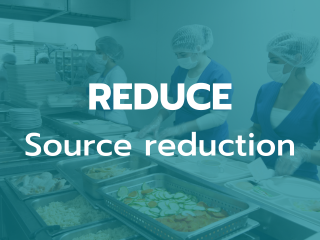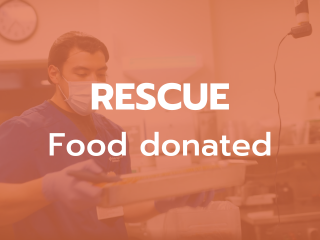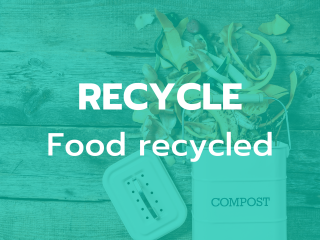Health care is joining organizations across the country in the goal to reduce food waste by 50% by 2030.
Food can be wasted but is never “waste.” As a valuable resource, it does not belong in a landfill. Landfilling food contributes to climate change and is a missed opportunity for addressing food insecurity. Our guidance, which aligns with the EPA food recovery hierarchy and evolving state and federal regulations, leads you through each strategy from source reduction to food donation to recycling and will help you make a plan for achieving your waste reduction goals.

Assemble the team
Collaborate with stakeholders both within and outside your organization to develop an impactful food waste reduction plan that aligns with your health system’s mission and goals.

Establish a baseline
Start by tracking the causes of food waste. This will help quantify costs associated with the waste and inform the best strategies to implement to make the most impact.

Set targets
Choose performance metrics and collect the right data so you can make informed decisions and measure progress toward the goal of 50% food waste reduction by 2030.
“Not only does this project impact greenhouse gases by keeping food waste out of the landfill…it is also about dollars saved, which is important to hospital administrators, and then there is the food rescue piece which is what is really important to our community.”
– Jack Breezee, Sutter Health regional director of food and nutrition services
Create a plan
.png)
Your baseline assessment will identify the sources of wasted food and help you narrow in on top strategies for waste reduction. The strategies are interconnected and should be viewed as a set of priorities, rather than a menu of options. A fully developed food waste program will employ multiple strategies across the hierarchy.
EPA wasted food scale
The EPA wasted food scale shows food waste reduction strategies from most preferred to least preferred. The EPA developed the wasted food scale as an update to the EPA food recovery hierarchy based on the findings of its 2023 report From Field to Bin: The Environmental Impacts of U.S. Food Waste Management Pathways.

“The staggering amount of wasted food in the United States has far-reaching impacts on resource conservation and food security while costing businesses and consumers money.”
– Environmental Protection Agency



